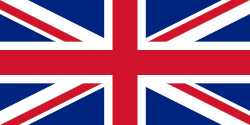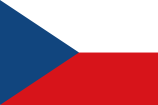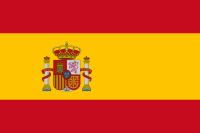Volkswagen Group
| Type | Public company (FWB: VOW, TYO: 7659), subsidiary of Porsche Holding SE |
|---|---|
| Founded | Germany, (1937) |
| Headquarters | Wolfsburg, Germany |
| Area served | Worldwide |
| Key people | Ferdinand Piëch (Chairman of the Supervisory Board) Prof. Dr. Martin Winterkorn (Chairman of the Board of Management) |
| Industry | Automotive industry |
| Products | Cars and trucks |
| Services | Financial services |
| Revenue | ▲ €108.9 Billion (2007)[1] |
| Operating income | ▲ €6.54 Billion (2007)[1] |
| Profit | ▲ €4.12 Billion (2007)[1] |
| Employees | 329,305 (2007) |
| Divisions | Volkswagen Group Fleet International, Volkswagen Group Supply, Volkswagen Leasing GmbH, Volkswagen Group United Kingdom Ltd., Volkswagen Group of America, Inc., Volkswagen Group China, Volkswagen do Brasil, Volkswagen Group Italia S.p.A., Volkswagen Group Australia |
| Subsidiaries | [2][3]vehicle brand companies: Audi AG, Bentley Motors Ltd., Bugatti Automobiles S.A.S., Lamborghini S.p.A., SEAT, S.A., Škoda Auto, Volkswagen Passenger Cars, Volkswagen Commercial Vehicles, MAN AG, Scania AB marine: Volkswagen Marine |
| Website | VolkswagenAG.com |
Volkswagen Group, or Volkswagen Aktiengesellschaft (German), (listed as Volkswagen AG) is a German automobile manufacturing group, currently the third largest automobile maker in the world[4], and the largest in Europe.
Although it operates worldwide, Volkswagen Group's core market is continental Europe. Of its car brands, Volkswagen Passenger Cars is its mainstream marque, and the Group's major subsidiaries also include well-known car marques like Audi, SEAT, Škoda, Lamborghini, Bentley, and Bugatti. The Group also has operations in commercial vehicles, owning Volkswagen Commercial Vehicles, along with a controlling stake in Scania AB and a 29.9% stake in MAN AG.
Volkswagen's second-largest market is China where its subsidiary, Volkswagen Group China is by far the second largest joint venture automaker.
The Volkswagen Golf is the third bestselling car in the world, selling over 25 million cars through 2006. In 2007 the Volkswagen Group sold 6.19 million automobiles, claiming over 10% of the world passenger car market. In late 2007, the company openly reported that they plan to double sales, overtake Toyota and become the world's largest automaker by 2018.[5]
Contents |
History
Volkswagen was founded in 1937 as a public concern by the then Nazi government to sell the Volkswagen Beetle. After the Second World War in 1945, Ivan Hirst of the British Army (REME) took control of the bomb-shattered factory, and tried to dismantle it and ship it home. However, no British car manufacturer was interested; "the vehicle does not meet the fundamental technical requirement of a motor-car ... it is quite unattractive to the average buyer ... To build the car commercially would be a completely uneconomic enterprise."[6] As part of the Industrial plans for Germany large parts of German industry, including Volkswagen, was to be dismantled. Total German car production was set at a maximum of 10% of the 1936 car production numbers.[7] The company survived by producing cars for the British Army, and in 1948, the British Government handed the company back over to the German state, where it was managed by ex-Opel chief Heinrich Nordhoff.

In 1960, upon the floatation of part of the German federal government's stake in the company on the German stock market, its name became Volkswagenwerk Aktiengesellschaft (Aktiengesellschaft, abbreviated AG, being equivalent to the English Corp[oration] or American Inc[orporated]). The name was changed to Volkswagen AG on 4 July 1985, to reflect the company's increasing global diversification from its headquarters and main plant, the Volkswagenwerk in Wolfsburg, Germany.
Ownership
Under the so-called "Volkswagen Law", no shareholder in VW can exercise more than 20% of the firm's voting rights, regardless of their level of stock holding.[8]In October 2005, Porsche acquired an 18.53% stake in the business, and in July 2006, Porsche increased that ownership to more than 25%. Analysts disagreed as to whether the investment was a good fit for Porsche's strategy.[9]
On 26 March 2007, after the European Union moved against a German law that protected VW from takeovers, Porsche took its holding to 30.9%, triggering a takeover bid under German law. Porsche formally announced in a press statement that it did not intend to take over Volkswagen, setting its offer price at the lowest possible legal value, but intended the move to avoid a competitor taking a large stake, or to stop hedge funds dismantling VW, which is Porsche's most important partner.[10] On 3 March 2008, Porsche announced that it has decided to increase its VW stake up to 51 per cent, which would be completed before the end of the year. This was announced just hours after VW declared it would take the majority stake in the Swedish truckmaker Scania.[11]
On 16 September 2008, Porsche announced that the company had increased its stake in Volkswagen to 35%.[12] As of October 2008, Porsche held 42.6 percent of Volkswagen's ordinary shares and holds stock options on another 31.5 percent. On 28 October 2008, Porsche announced that they effectively held over 74%, 42.6% actual shares and the rest as convertible options. Volkwagen briefly became the world's most valuable company as the stock price rose to over 1,000 euros as short sellers tried to cover their positions.[13]
Leadership
- 1945-1948 — Ivan Hirst
- 1948-1967 — Heinrich Nordhoff
- 1968-1971 — Kurt Lotz
- 1971-1975 — Rudolf Leiding
- 1975-1982 — Toni Schmucker
- 1982-1993 — Carl Hahn
- 1 January 1993 - 16 April 2002 — Ferdinand Piëch
- 16 April 2002 - 31 December 2006 — Bernd Pischetsrieder
- 1 January 2007 - present — Martin Winterkorn
Corporate structure, brands and companies
Volkswagen Group owns nine active automotive companies, and their relevant marques:
 Audi AG, and the 'Audi' marque — 99.14% ownership; the Audi marque is the one remaining active brand of the former Auto Union, bought from Daimler-Benz on 30 December 1964
Audi AG, and the 'Audi' marque — 99.14% ownership; the Audi marque is the one remaining active brand of the former Auto Union, bought from Daimler-Benz on 30 December 1964
 Automobili Lamborghini S.p.A., and the 'Lamborghini' marque — 100% ownership by Audi AG; company was bought in June 1998
Automobili Lamborghini S.p.A., and the 'Lamborghini' marque — 100% ownership by Audi AG; company was bought in June 1998- Audi AG wholly own the private high performance subsidiary company, quattro GmbH
 Bentley Motors Limited, and the 'Bentley' marque — 100% ownership by Volkswagen AG; the company (at the time known as Rolls-Royce & Bentley Motors Ltd.) was bought on 28 July 1998 from Vickers, but did not include the 'Rolls-Royce' brand name. The Rolls-Royce marque was subsequently restarted by BMW who had licensed the brand from Rolls-Royce plc.
Bentley Motors Limited, and the 'Bentley' marque — 100% ownership by Volkswagen AG; the company (at the time known as Rolls-Royce & Bentley Motors Ltd.) was bought on 28 July 1998 from Vickers, but did not include the 'Rolls-Royce' brand name. The Rolls-Royce marque was subsequently restarted by BMW who had licensed the brand from Rolls-Royce plc.
 Bugatti Automobiles SAS, and the 'Bugatti' marque — 100% ownership via the Volkswagen France subsidiary of VWAG[14]
Bugatti Automobiles SAS, and the 'Bugatti' marque — 100% ownership via the Volkswagen France subsidiary of VWAG[14]
 Škoda Auto, and the 'Škoda' marque — 100% ownership since 1999
Škoda Auto, and the 'Škoda' marque — 100% ownership since 1999
 SEAT, S.A. and the 'SEAT' marque — initially 100% ownership by VW since 1990, then placed in the former Audi Brand Group with Lamborghini, now realigned 100% ownership by Volkswagen Group
SEAT, S.A. and the 'SEAT' marque — initially 100% ownership by VW since 1990, then placed in the former Audi Brand Group with Lamborghini, now realigned 100% ownership by Volkswagen Group
 Volkswagen Passenger Cars, and the 'Volkswagen' marque — 100% ownership
Volkswagen Passenger Cars, and the 'Volkswagen' marque — 100% ownership
 Volkswagen Commercial Vehicles (VWCV) or 'Volkswagen Nutzfahrzeuge' (VWN) (German) — 100% ownership; started operations as an independent entity in 1995. VWCV/VWN is in charge of all commercial vehicle developments within the Group
Volkswagen Commercial Vehicles (VWCV) or 'Volkswagen Nutzfahrzeuge' (VWN) (German) — 100% ownership; started operations as an independent entity in 1995. VWCV/VWN is in charge of all commercial vehicle developments within the Group
 Scania AB, and the 'Scania' marque (controlling shareholder) — 68.6% ownership since March 2008
Scania AB, and the 'Scania' marque (controlling shareholder) — 68.6% ownership since March 2008
Note: From July 1998 until December 2002, Volkswagen AG's Bentley division also sold cars under the Rolls-Royce marque, under an agreement with BMW, which had bought the rights to the Rolls-Royce name, but not the Rolls-Royce operations. From 2003, only BMW has been able to make cars under the Rolls-Royce marque.
The Group also owns five inactive marques, via Audi AG:
 Auto Union (the Auto Union company, together with NSU, evolved into the modern-day Audi AG in 1985, and the interlocked four-ring badge from Auto Union is still used by Audi)
Auto Union (the Auto Union company, together with NSU, evolved into the modern-day Audi AG in 1985, and the interlocked four-ring badge from Auto Union is still used by Audi)
 DKW
DKW
 Horch
Horch
 NSU - bought in 1969 by Volkswagen AG, and merged into Audi AG; the NSU brand has not been used since 1977. However, the current Audi AG shares trade under the ticker symbol "NSU".
NSU - bought in 1969 by Volkswagen AG, and merged into Audi AG; the NSU brand has not been used since 1977. However, the current Audi AG shares trade under the ticker symbol "NSU".
 Wanderer
Wanderer
These heritage marques are retained and managed through the companies Auto Union GmbH and NSU GmbH, both of which are 100% owned by Audi AG.
Commercial vehicle interests
Volkswagen Group (Volkswagen AG) is the controlling shareholder in the Swedish commercial vehicle maker Scania AB, with a capital stake of 37.73%, and 68.60% of the voting rights. Volkswagen AG originally acquired a stake in Scania after Volvo's aborted takeover attempt in 2000, and then increased that to a capital stake of 16.5% and a voting stake of 33.4% in 2007. On 3 March 2008, Volkswagen announced that it would acquire all the shares in Scania AB held by Investor AB and the Wallenberg Foundation. Once cleared by the relevant authorities, Scania became the ninth marque in the Volkswagen Group.
On 4 October 2006, Volkswagen acquired a 15.1% stake in German commercial vehicle maker MAN AG, and later increased to 29.9%. In 2007, MAN AG launched a hostile offer to acquire Scania AB, but this was subsequently withdrawn.
Former Volkswagen Group CEO Bernd Pischetsrieder, and his successor Prof. Dr. Martin Winterkorn, have considered a three-way merger between MAN AG, Scania AB, Volkswagen AG's own Brazilian heavy truck division, and possibly their light truck and van division as well. Due to the size of Volkswagen AG's stakes in MAN and Scania, it is expected that Volkswagen AG would own a majority stake in such a merged entity.
Scania AB
The Wallenberg family began divesting its interests in various Swedish companies, but as a result of Volvo's aborted takeover of Scania AB, it agreed to hold a "significant share holding" in only one of Sweden's heavy truck manufacturers. This resulted in Volkswagen AG securing an 18% capital stake and 34% voting stake in Scania AB. On the 3 March 2008, it was announced that the Wallenberg's would sell their remaining stake in Scania AB to Volkswagen AG. The purchase of the stake increased Volkswagen AG's total votes in Scania to 68.60% (previously 37.98%) which corresponds to 37.73% of the capital (previously 20.89%).[15]
MAN AG
Volkswagen AG has a 29.9% stake in German truck manufacturer MAN AG, who recently in 2006 launched a takeover bid for the Swedish truck maker Scania, in which Volkswagen AG held, at the time, 20.3% of company and 35.31% of the voting stock. Volkswagen AG had announced that it would like to see MAN and Scania merge, together along with Volkswagen Commercial Vehicles Truck and Bus operations, and form a new company in which Volkswagen AG has a blocking minority stake. However later press released stated that such a merger was not a priority, and Scania would continue to be run as a separate entity. A merged MAN-Scania would become the largest European Truck maker, leapfrogging both Volvo AB and Daimler AG. However, Daimler will still be the largest worldwide truck maker, as it has operations in the U.S., where MAN and Scania currently do not.
Ownership
The share ownership of Volkswagen AG is distributed as follows:
In percent of voting rights:
- 42.60% - Porsche Automobil Holding SE [16]
- 20.10% - State of Lower Saxony
- 3.58% - UBS AG, Zurich.
In percent of subscribed capital:
- 22.5% - Porsche Automobil Holding SE
- 14.8% - State of Lower Saxony
- 30.9% - Private shareholders / others
- 25.6% - Foreign institutional investors
- 6.2% - German institutional investors
Notes
- ↑ 1.0 1.1 1.2 "Volkswagen Group - Investor Relations - Annual Report 2007" (PDF).
- ↑ Volkswagen AG - Other Companies
- ↑ Volkswagen AG - List of Holdings (as of 31 Dec 2007) (pdf)
- ↑ n-tv.de - Volkswagen overtakes Ford
- ↑ "Feisty VW wants to surpass Toyota". Autoweek.
- ↑ The Guardian - Obituaries - Ivan Hirst
- ↑ Harry S. Truman - Library & Museum - Draft, The President's Economic Mission to Germany and Austria, Report 3, March, 1947; OF 950B: Economic Mission as to Food…; Truman Papers.
- ↑ "Top EU court finds against VW law". BBC.
- ↑ "Porsche cites need for changes at VW". IHT.
- ↑ "Porsche triggers a VW takeover bid". BBC.
- ↑ "Porsche to head €150bn empire". Financial Times.
- ↑ http://hosted.ap.org/dynamic/stories/E/EU_GERMANY_PORSCHE_VOLKSWAGEN?SITE=DCTMS&SECTION=HOME&TEMPLATE=DEFAULT
- ↑ http://www.foxbusiness.com/story/markets/volkswagen-worlds-biggest-company/
- ↑ Bugatti - A Legendary Brand Is Reborn
- ↑ VolkswagenAG.com - Volkswagen acquires entire Investor and Wallenberg Foundations stake in Scania
- ↑ You must specify title = and url = when using {{cite web}}."". bloomberg.com.
See also
- Leading firms by activity
- list of automobile manufacturers
- list of German cars
- Volkswagen Group China
- Volkswagen of America
- Volkswagen do Brasil
External links
- Volkswagen AG corporate website (English)
- Driving Ideas Volkswagen Group corporate website for their corporate slogan
|
||||||||||||||||||||||||||||||||||||||
|
|||||